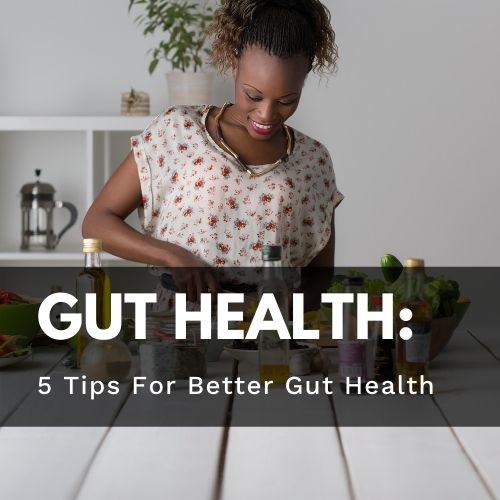Your Cart is Empty
COLLECTIONS:
SPECIAL OFFERS:
LEARN:

The Benefits of CoQ-10
February 17, 2021 4 min read
CoQ10 (or coenzyme Q10) is an antioxidant that is vital for your body’s ability to create energy. It is important because it is present in every cell in your body.
Maintaining optimal Coenzyme Q10 levels is crucial for maintaining overall health and wellness.
We’ll dig into the basics of CoQ-10 below.

What is CoQ-10?
Coenzyme Q10 is a lipid-soluble antioxidant found in every cell in your body. It plays an important role in the synthesis of adenosine triphosphate (ATP), the energy currency your body depends on (1).
This may sound complex, but this simply means that CoQ-10 is crucial for the production of energy in your cells. When your body is able to produce more energy at a cellular level, it creates more energy throughout your whole body.
Coenzyme Q10 comes in multiple forms, with Ubiquinone and Ubiquinol being the two primary options.
CoQ-10 has the prefix "Ubiqui-" because of its ubiquity in your body since it is found in every cell of your body.

CoQ10 Benefits
Since CoQ-10 is involved in the production of energy in the cell (ATP), maintaining optimal levels is important for maintaining energy levels. High energy levels increase overall health and wellness.
Coenzyme Q10 is an essential component of cellular energy production, its antioxidants properties have been shown to extend cell life and benefit high-energy systems. This includes the cardiovascular, neurological and immune systems (2).
Optimal levels are especially important for heart health. The heart is the body’s largest energy user. Without enough CoQ10, your heart can’t pump blood as efficiently as it should (3).
This means that Coenzyme Q10 is absolutely crucial for overall cardiovascular health.
Additionally, CoQ-10 helps too:
•Helps Support Cellular Energy Production (and Physical Performance)
•Supports Cardiovascular Health
•Boosts Antioxidant Activity
•Helps Maintain Healthy Blood Sugar Balance
•Promotes Neurological Health

CoQ10 Levels Decline As You Age
Your body naturally produces CoQ10 throughout your life, but production drops off as you get older. This drop-off in Coenzyme Q10 production tends to happen between the ages of 35-40 (4).
Supplementation with CoQ-10 around this age (between 35-40) is best for maintaining healthy levels as you age.
The Best Form of CoQ10
The right form of CoQ-10 is important for effective results. There are two forms of Coenzyme Q10, Ubiquinol and Ubiquinone.
Which is the best form of CoQ10 to take?
Ubiquinol is the form of CoQ10 naturally found in your body. Since it's in a natural state, it’s easier for your body to use and absorb. You can grab a bottle of Utzy naturals Ubiquinol here.
Ubiquinone is the other form of CoQ10. When you take Ubiquinone, your body converts it to Ubiquinol where it is then used by your body. The problem is that your body's ability to convert Ubiquinone decreases as you age.
Generally speaking, if you are over the age of 50, you would benefit from using Ubiquinol. If you're younger, you should be able to take Ubiquinone without a problem. Another option is to rotate between the two forms, making it more cost effective.
Regardless of the form, make sure that the Coenzyme Q10 supplements that you buy aredelivered in a highly bioavailable, oil-based soft gel. For best absorption, CoQ-10 must be dissolved and transported with a lipid carrier.

CoQ-10 Dosage
The best dosage for a healthy individual is 50-100mg per day. Make sure to take a highly bioavailable form of CoQ10 so that you can get the full benefits.
Timing is important when supplementing with coenzyme Q10, see the section below for the best time of day to take CoQ10.
Best Time of Day To Take CoQ10
Your body best absorbs CoQ10 when it is taken in small amounts (of 50mg-100mg). That being said, CoQ-10 should be taken throughout the day, in divided dosages if possible.
Coenzyme Q10 is more easily absorbed with food, especially fatty foods such as avocados or nuts. This makes taking it with meals is a great option.
CoQ10 Side Effects
CoQ10 is safe up to 3,000 milligrams daily for up to eight months in healthy people (5).
Use cautiously in high doses in people with liver problems. Doses of greater than 300 milligrams daily may affect levels of liver enzymes.
Use cautiously in people who are taking blood thinners (such as Warfarin). Coenzyme Q10 may reduce the effectiveness of blood thinners.
That being said, the large body of evidence supporting CoQ10 supplementation has been embraced in virtually every corner of the medical and scientific community.
As always, it is best to get a recommendation from your doctor before taking any type of dietary supplement, especially when pregnant or nursing.
How To Get CoQ10 Through Diet
CoQ10 is naturally found in high levels in organ meats such as liver, kidney, and heart, as well as in beef, sardines, and mackerel.
Vegetarian sources of Coenzyme Q10 are also available through foods such as spinach, broccoli, and cauliflower. Legumes such as peanuts and soybeans also contain beneficial amounts.
Supplementation is also a good option, see recommended products below.

Best CoQ10 Supplements To Buy
We carry a high absorption Ubiquinone and Ubiquinol product at Utzy Naturals. Our CoQ-10 is delivered in an oil-based form for enhanced absorption and maximum stability.
To improve absorption, our CoEnzyme Q10 has been dissolved and transported with a lipid carrier. Click on the image below to learn more!
________________________________________________________________________

Daniel Powers (co-founder of Utzy Naturals) is a health fanatic and writer. He's currently pursuing a Masters Degree in Herbal Medicine. He's obsessed with learning how to live a healthier, happier life.
________________________________________________________________________
References:
1. Hernández-Camacho, J. D., Bernier, M., López-Lluch, G., & Navas, P. (2018, February 5). Coenzyme Q10 Supplementation in Aging and Disease. Retrieved from https://www.ncbi.nlm.nih.gov/pmc/articles/PMC5807419/
2.
Saini, R. (2011, July). Coenzyme Q10: The essential nutrient. Retrieved from https://www.ncbi.nlm.nih.gov/pmc/articles/PMC3178961/
3.
Zozina, V. I., Covantev, S., Goroshko, O. A., Krasnykh, L. M., & Kukes, V. G. (2018). Coenzyme Q10 in Cardiovascular and Metabolic Diseases: Current State of the Problem. Retrieved from https://www.ncbi.nlm.nih.gov/pmc/articles/PMC6131403/
4. Bonakdar, A. R., & Guareri, E. (2005). Coenzyme Q10. Retrieved from https://www.aafp.org/afp/2005/0915/p1065.pdf
5.
Hernández-Camacho, J. D., Bernier, M., López-Lluch, G., & Navas, P. (2018, February 5). Coenzyme Q10 Supplementation in Aging and Disease. Retrieved from https://www.ncbi.nlm.nih.gov/pmc/articles/PMC5807419/
Leave a comment
Comments will be approved before showing up.
Also in Health
Subscribe
Sign up to get the latest on sales, new releases and more …
Join the Utzy Naturals Club!
Sign up and get the latest on sales, new releases, and more...










